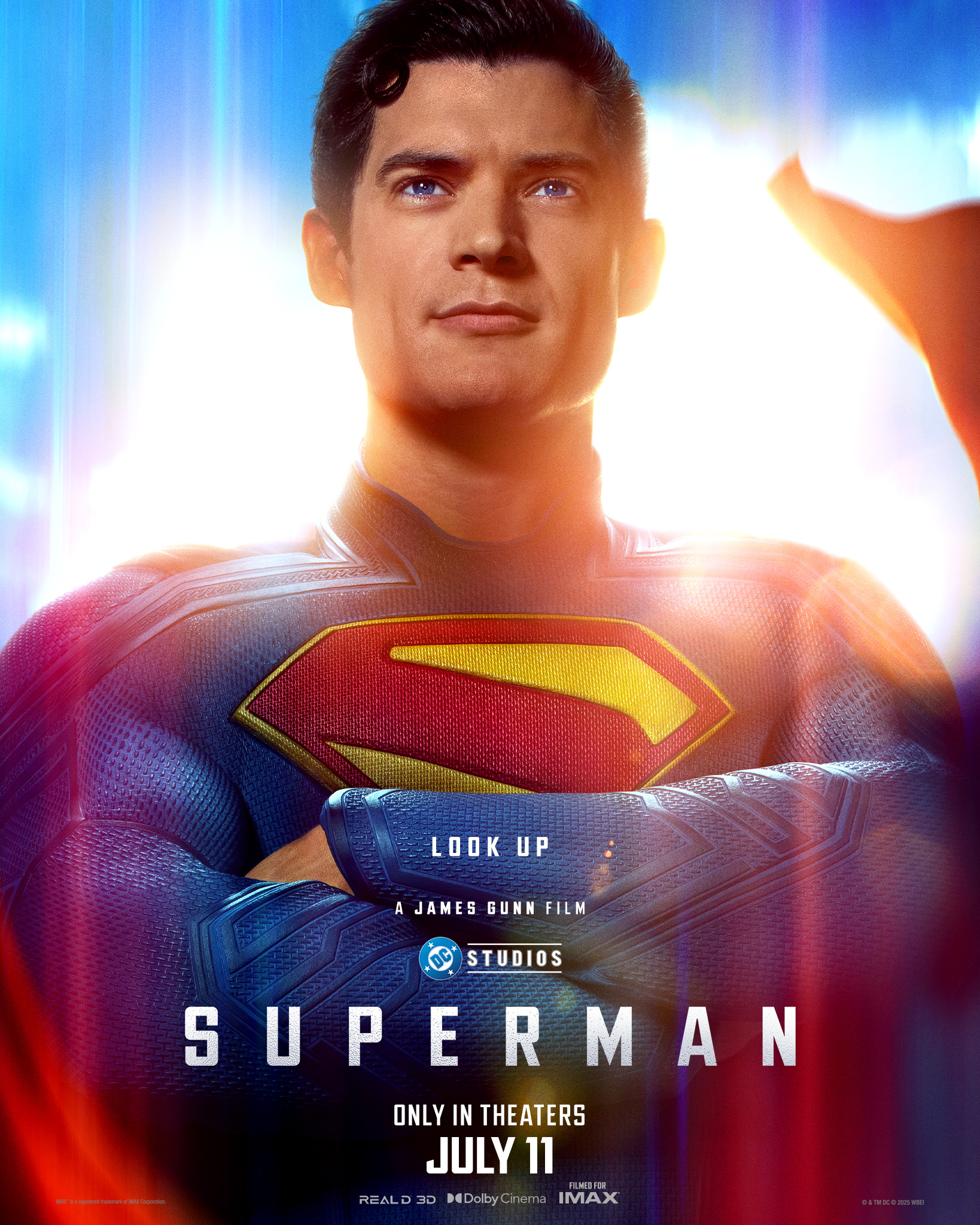Earlier this summer, James Gunn launched the first film in his reboot of the DCU. Superman (2025) arrives as a refreshing reimagining of one of America’s most beloved icons. While more recent versions of the character have muddled the message behind Superman with darker, more cynical takes, Gunn breathes new life into the hero, focusing on themes of sincerity, humor and humanity in his portrayal. Superman doesn’t just reboot a hero—it redefines who Superman is for a new generation.
The film follows Clark Kent as he becomes the target of a global smear campaign against Superman, orchestrated by Lex Luthor. Through staged disasters and propaganda, Lex paints Superman as a threat rather than a savior and turns public opinion against him. Lex also takes him prisoner to ensure that he cannot interfere in a war brewing between Boravia and Jarhanpur—a conflict secretly fueled by Lex’s own financial greed. Clark grapples with this throughout the film, as well as a shocking revelation about his biological parents’ true intentions which makes him question their legacy. Struggling with doubt and isolation, he comes to realize that his true strength lies not in where he came from, but in his humanity, compassion, and chosen family who believe in him even when the world does not. In embracing this truth, Superman reclaims his place as a symbol of hope, proving that his identity is defined by his actions, not by blood or fear.
One thing that stood out to me in the film is how much emphasis is placed on character rather than spectacle. Big action scenes are focused on characters and dialogue, and instead of rushing off after defeating a villain, Superman takes time to speak with the people he saves, asking if they’re okay and ensuring that they feel safe. These moments of tenderness highlight the film’s core message: that strength means little without empathy.
Additionally, this film was filled with bright colors and bold contrasts. Unlike other recent incarnations, Superman’s suit returns to its classic, cartoony design, featuring much brighter colors and the return of his iconic trunks. Even when the story led into a darker environment such as Lex Luthor’s cold and pitch-dark pocket-dimension, there was still a glowing rainbow anti-proton river flowing below, symbolizing the persistence of hope even in the most desolate places.
Towards the beginning of the film, Lex Luthor leaks a message from Superman’s parents. The footage was previously damaged and incomplete, but Lex is able to reveal the full message to the public, shocking everyone including Superman himself. Defeated, Clark returns to his apartment to assure Lois Lane that he was unaware of the full message, that he believed his parents sent him to earth to serve the human race and do good. She believes him, but starts to talk about their relationship, claiming they’re too different: Clark always looks for the best in everyone, easily trusts people, and finds everyone beautiful. To this, Clark responds, “maybe that’s the real punk rock,” insinuating that it’s now countercultural to express empathy and kindness. In today’s world, it’s becoming increasingly easier to hate and to be angry, especially with the current culture of social media—being kind takes more effort and more work than ever before. In this scene, Gunn shows us that being kind and compassionate is the most revolutionary thing we can do right now, making it one of the movie’s most poignant moments.
On a symbolic level, Superman’s story parallels that of the immigrant experience as well. Wrongfully arrested and imprisoned, Superman is denied his basic rights. When he asks to have them read, he is told that because he is an alien, he has none, mirroring the systemic marginalization many immigrants face in this country. As an alien striving to belong, he reflects the struggles of navigating identity, acceptance, and compassion in a world that is too-often hostile to those who are different.
What stood out to me most in this film were the fictional countries of Boravia and Jarhanpur, which seemed to be directly paralleling Israel and Palestine. Boravia, a strong, heavily armed U.S. ally invades its weaker, poorer neighbor, Jarhanpur. Boravia is portrayed as displacing indigenous Jarhanpurians and expanding territory through force, similar to what Israel has been doing to Palestine for decades now, justifying it as “saving” Jarhanpur from its oppressive government. The scenes of children and unarmed civilians suffering at the hands of Boravia really struck me emotionally, reflecting the current state of Palestine so vividly. But at the same time, I felt an incredible sense of joy seeing a story like this represented on the big screen. In stark contrast to the recent stream of superhero movies—especially Marvel, which literally has a contract with the DOD—it was beautiful and moving to see Superman and the “Justice Gang” stand firmly with humanity.
Superman (2025) demonstrates that sincerity, hope, and empathy can still thrive in blockbuster cinema. By re-centering the character’s humanity, Gunn crafts not only a compelling superhero story but also rebuilds an icon that reflects who we are—and who we want to be. In a time where people feel increasingly hopeless, in a world already so dark and gritty, Superman offers a beacon of light, reigniting hope into the hearts of viewers across the world.


Leave a Reply